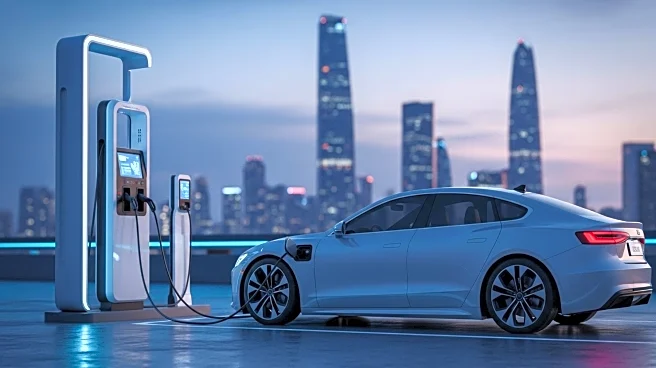What's Happening?
Recent changes in electric vehicle (EV) prices in the U.S. have been observed, with some models experiencing price increases while others see reductions. Tesla has notably reduced the prices of its Model 3 and Model Y, albeit with several downgrades and removed features. Audi and Volvo have also adjusted their EV prices, with the Audi Q4 e-tron and Volvo EX40 seeing price increases, while the Volvo EX30 experienced a significant price cut. Cadillac's OPTIQ model prices have varied based on model year adjustments. These changes reflect ongoing market dynamics and the expiration of EV tax credits.
Why It's Important?
The fluctuation in EV prices highlights the competitive nature of the electric vehicle market as manufacturers adjust pricing strategies to attract consumers. Tesla's price reductions may influence other automakers to reconsider their pricing models to remain competitive. The expiration of EV tax credits could impact consumer purchasing decisions, prompting automakers to offer more attractive pricing to maintain sales momentum. As the market evolves, pricing strategies will play a crucial role in shaping consumer preferences and driving the adoption of electric vehicles.
What's Next?
Automakers may continue to adjust EV prices in response to market conditions and consumer demand. The competitive landscape could lead to further price reductions or feature adjustments as manufacturers strive to capture market share. The industry may also see increased efforts to enhance vehicle features and technology to justify pricing changes. As consumer interest in electric vehicles grows, automakers will need to balance pricing strategies with technological advancements to meet expectations and drive sales.
Beyond the Headlines
The ongoing price adjustments in the EV market may have broader implications for the automotive industry, including supply chain considerations and manufacturing costs. Automakers must navigate these challenges while ensuring profitability and sustainability. The shift towards electric vehicles also raises questions about infrastructure development and environmental impact, as increased adoption necessitates expanded charging networks and renewable energy sources. Long-term, these factors will influence the industry's trajectory and its role in addressing climate change.










